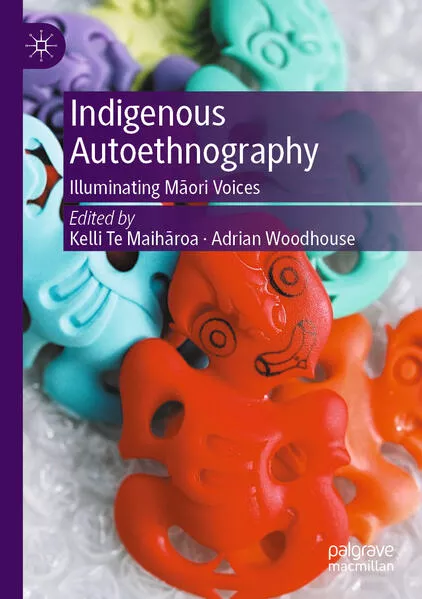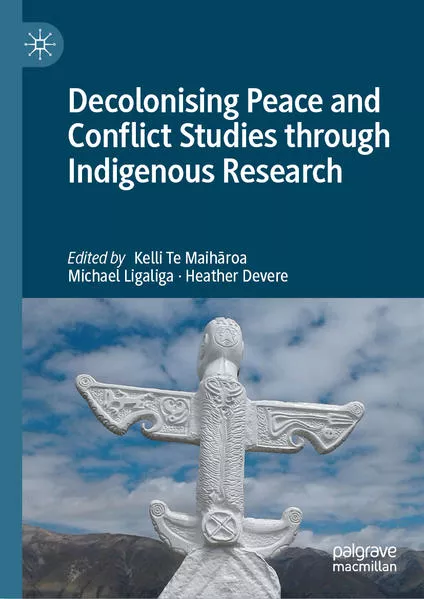
- Publikationen ca: 5
- Fragen & Antworten
Kelli Te Maihāroa
Dr. Kelli Te Maihāroa (Waitaha, Ngāti Rārua, Te Ātiawa) has held leadership roles at the Otago Polytechnic as Tumuaki: Rakahau Māori / Director of Māori Research and Kaihautū: Te Kāhui Whetū Lead / Capable Māori, working with Iwi Māori throughout Aotearoa, New Zealand. She is an active member within her whānau, Iwi and local Māori community. She is a mokopuna of Te Maihāroa, the last southern Māori prophet and tohuka (expert tribal specialist).
Dr. Michael Fusi Ligaliga is a lecturer and researcher in the School of Māori and Pacific Indigenous Studies at the University of Otago in Dunedin, Aotearoa, New Zealand. He teaches Pacific Island issues, indigenous leadership and peace and conflict in the Pacific. He has acted as Interim Director of the David O. McKay Centre for Intercultural Understanding at Brightham Young University Hawai’i.
Dr. Heather Devere is Director of Practice at the Te Ao o Rongomaraeroa/The National Centre for Peace and Conflict Studies, University of Otago in Aotearoa, New Zealand. She has written widely on issues related to the politics of friendship, Indigenous peace traditions and peacebuilding, peace journalism, restorative justice, and social justice. She is Secretary of Parihaka Network: Ngā Manu Korihi, involved in community mediation, refugee settlement, human rights, and social justice issues.
Indigenous Autoethnography
This book opens new pathways for decolonial autoethnography, presented as a series of reflective stories that showcase how Māori have negotiated and navigated their personal and professional identities within contemporary society. Framed within the academic methodology of Indigenous Autoethnography, authors recount their personal and professional experiences to address their encounters with cultural trauma and personal enlightenment.
Indigenous Autoethnography
This book opens new pathways for decolonial autoethnography, presented as a series of reflective stories that showcase how Māori have negotiated and navigated their personal and professional identities within contemporary society. Framed within the academic methodology of Indigenous Autoethnography, authors recount their personal and professional experiences to address their encounters with cultural trauma and personal enlightenment.
Indigenous Autoethnography
This book opens new pathways for decolonial autoethnography, presented as a series of reflective stories that showcase how Māori have negotiated and navigated their personal and professional identities within contemporary society. Framed within the academic methodology of Indigenous Autoethnography, authors recount their personal and professional experiences to address their encounters with cultural trauma and personal enlightenment.
Decolonising Peace and Conflict Studies through Indigenous Research
This book focuses on how Indigenous knowledge and methodologies can contribute towards the decolonisation of peace and conflict studies (PACS). It shows how Indigenous knowledge is essential to ensure that PACS research is relevant, respectful, accurate, and non-exploitative of Indigenous Peoples, in an effort to reposition Indigenous perspectives and contexts through Indigenous experiences, voices, and research processes, to provide balance to the power structures within this discipline.
Decolonising Peace and Conflict Studies through Indigenous Research
This book focuses on how Indigenous knowledge and methodologies can contribute towards the decolonisation of peace and conflict studies (PACS). It shows how Indigenous knowledge is essential to ensure that PACS research is relevant, respectful, accurate, and non-exploitative of Indigenous Peoples, in an effort to reposition Indigenous perspectives and contexts through Indigenous experiences, voices, and research processes, to provide balance to the power structures within this discipline.




